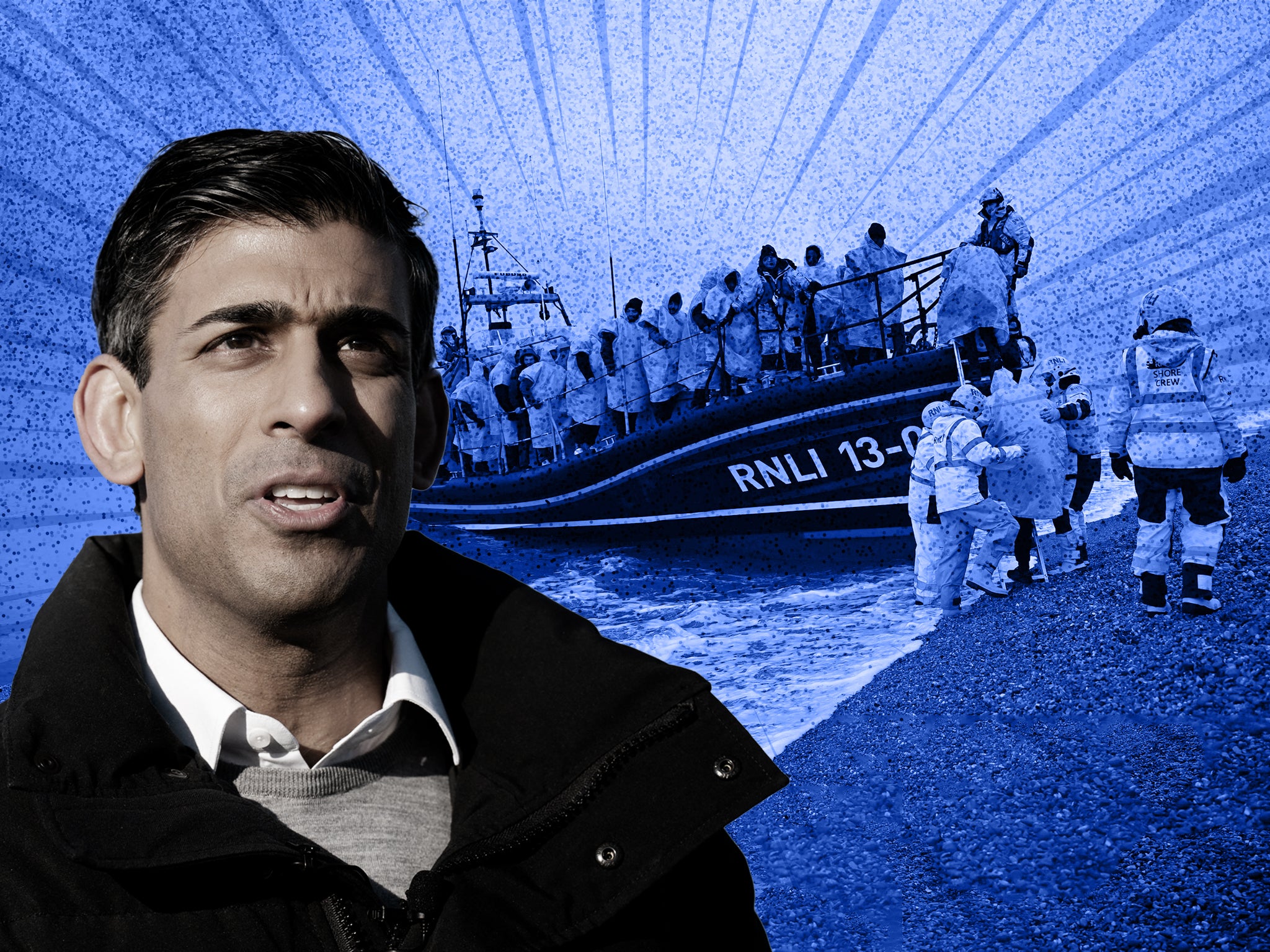Brexit caused small boats crisis in English Channel, report finds
Rishi Sunak should admit ‘main factor’ behind problem so he can fix it, says Durham University study

Boris Johnson’s Brexit deal is the primary factor in the crisis of small boat crossings in the English Channel, a new study has found.
The decision to leave the EU without a returns agreement in place has led to the “skyrocketing” number of dangerous crossings, according to the Durham University report.
Under a mechanism known as the Dublin Convention, the British government could previously ask fellow EU nations to take people back if they had passed through safe countries en route to the UK.
“The government used to have a deal on returning migrants, but it ended with Brexit and no alternative was agreed,” said study author Professor Thom Brooks. “This made it far more difficult to return any new arrivals, and numbers have skyrocketed after this deal stopped.”
There were no recorded small boat crossings until 2018, and migration levels remained steady until the Brexit transition period ended in 2020, the study found.
The academics claim that the Tory government was repeatedly warned about the need for a returns policy, with Prof Brooks saying he predicted as far back as 2016 that migration numbers would rise steeply without one.
The Durham University professor of law and government – who has estimated that the number of people crossing the Channel will rise from 45,000 to as many as 80,000 in 2023 – said the Home Office accepts that small boats will not be stopped under current plans.
Prof Brooks said that the best way to prevent more small boat crossings would be to establish a new, post-Brexit returns agreement with France and the wider EU.
“The prime minister must acknowledge the main factor for creating the small boats problem so he can fix it. Rishi Sunak’s difficulty is it would mean recognising key mistakes that his government made, and were warned about but ignored,” the professor said.
Mr Sunak and Suella Braverman are shortly expected to unveil legislation that will remove a person’s right to claim asylum if they are deemed to have arrived by an “illegal” route, and could remove the right to appeal any decision to deport them.
But the Durham report found no evidence that deporting migrants to Rwanda has a deterrent effect on those making the journey, suggesting instead that better coordination under the National Crime Agency could help to tackle illegal trafficking gangs.
It also found that the rise in the number of small boat crossings did not create the backlog of asylum claims. Instead it blames understaffing among caseworkers, the dropping of six-month targets, and the use of outdated systems.
“Small boats can be reduced significantly, if not stopped,” said Prof Brooks. “But only if we have a workable plan addressing its main cause, improved efficiency in application processing, and better enforceability, which this report sets out.”

It comes as the Supreme Court ruled the Northern Ireland protocol lawful on Wednesday, dismissing a challenge by a collective of unionists and Brexiteers.
It also follows Sir John Major’s assessment of Brexit as a “colossal mistake”. He told MPs that EU membership had helped “smooth the way” for many of the agreements at the start of the Northern Ireland process in the 1990s.
In a warning to the DUP and some Tory Brexiteers, who have threatened to oppose any compromise struck by Mr Sunak with the EU on the protocol, he added: “Statesmen who do [compromise] will succeed. Politicians who keep shouting slogans to their most extreme supporters will not.”
Earlier this week, chancellor Jeremy Hunt was challenged in the Commons to admit Britain was “poorer” because of Brexit. Labour’s Barry Sheerman urged MPs from all parties to admit that “we are poorer in this country” after leaving the EU.
Mr Hunt – a Remain campaigner in 2016 – replied: “If Labour really are against Brexit, they should have the courage of their convictions and say they want to rejoin the EU, and that is the problem, because they don’t believe they can make a success of it; they will never be able to run the British economy under it.”




Join our commenting forum
Join thought-provoking conversations, follow other Independent readers and see their replies
Comments